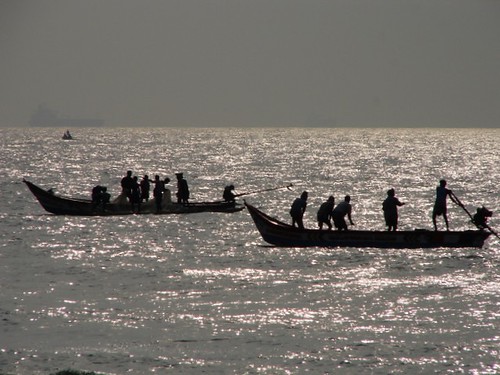You might Not be the Owner of the Land Registered in your Name – The Land Acquisition Act says so

Do you know a 100 year old Act may deprive you of your property in a couple of days?
The Land Acquisition Act, 1894 gives considerable power to the government to to acquire any land for “public purposes”. The Act is being misused by both State and Central governments to acquire multitude of lands specially in the rural areas in the illusion of development and urbanization.
Purpose of the Act
Acquisition of land was a primary requirement of the British in order to carry out some of their most ambitious projects such as railways, rural planning and development, construction of public offices, building establishments required by corporations and providing residence to the poor. Thus they enacted a draconian piece of legislation known as the Land Acquisition Act, 1894.
Features of the Act
1. After the amendment of 1984, the act applies to whole of the country except the state of Jammu and Kashmir. Prior to this amendment; Rajasthan, Nagaland, Kerala and J&K had similar but separate land acquisition Acts.
2. The government may also acquire land under other certain acts such as Coal Bearing Act, Forests Act, Slum Areas Act, Delhi Development Act and Maharashtra Industrial Development Act.
Procedure under the Act
1. The government through publication notifies that the land in a particular locality is needed or may be needed for a public purpose or for a company. S. 4(1).
2. Authorized officers ascertain whether the said land is suitable for the purpose in view S. 4 (2).
3. Persons interested in the property may file their objections which would be enquired by Collector. S. 5-A.
4. Declaration and publication of intended acquisition by Government. S 6
5. The land is to be marked, measured and planned under the supervision of the Collector. Sections 7 & 8.
6. Issuance of public and individual notices to interested persons who may file their claims for compensation. S. 9.
7. Claims are to be enquired by the Collector. S. 11
8. Collector to award adequate compensation which would be awarded after the possession of land by the collector. Present Scenario The Act was heavily amended in 1984 by the Central Government. On one hand, amendment made provisions for efficient and adequate compensation but on the other it widened the scope of Sec.17 of the Act which deals with acquisition of land by companies. It is easier for government companies to acquire land vis-a-vis private enterprises.
The governments have always construed “public purposes” in liberal sense. They have succeeded in classifying any acquisition of land as being in public interest. With the emergence of SEZs and public-private partnerships eminent domain is being abused on a vast scale.
Unfortunately, the people who loose their lands have never been reasonably compensated. They are generally poor and uneducated and have no means to fight their cause. Ironically, the cost of development is borne by people who can hardly afford it.
Instances
1. Tata Nano Project:- After the protests Tata shifted its Nano Plant to Gujarat. But it still holds the lease of the disputed land for another 99 years.
2. Sanand The fertile land in Gujarat is being acquired to make space for the small wonder Nano. The government has already taken 5000 acres of land under its control.
3. Posco The iron-mining project has been delayed for 5 years as the farmers in Orissa are reluctant to surrender their fertile lands. Most of them have been killed or injured during the protests.
4. Reliance SEZ The Supreme Court rejected its special leave petition of Reliance to seek a stay order for land acquisition in Raigad, Maharashtra. However, it was able to acquire 1,150 Hectares of land near Navi Mumbai to accomplish its industrial and residential plans.
5. Arcelor Mittal Thousands of villagers of Jharkhand have contended that the government is selling land of tribals to non-tribals which violates the Chotanagpur Tenancy Act.
Deficient Bills
The government intends to amend the Act. The pending bills propose a number of changes such as re-defining ‘public purpose’; reduction in acquisition of land by private parties; formulation for Social Impact Assessment and establishment of National Rehabilitation Commission.
Although all references to companies have been deleted in the Amendment Bill, 2007; the new definition of “public purpose” includes acquisition for “a person” (Company is regarded as a person in law). The Rehabilitation Bill also has a number of flaws. The language of the bill gives discretionary powers to the government. The bill doesn’t impose only sanction on non-compliance of its laws. Conclusion
In India land is equity. People spend their entire life-savings to purchase a small piece land or any land for sale. Land resources are required by nations to progress. But at what cost? U.S.A and other countries follow a relatively more transparent procedure than India.
The powers of the government need to be restrained. The farmers should be given economic rights in their lands. If they are deprived of their lands, they must be recognized as stakeholders in the projects. Alternatively acquisition of land for commercial purposes must be discouraged. The Act must be abrogated and replaced by a new transparent legislation which sympathetic towards the land owners.
“The act empowers the government to transform an owner into a landless laborer overnight.”
I dedicate the post to my father Mr. A.K. Agarwal, who not only suggested the topic but also helped in research.
Read more
